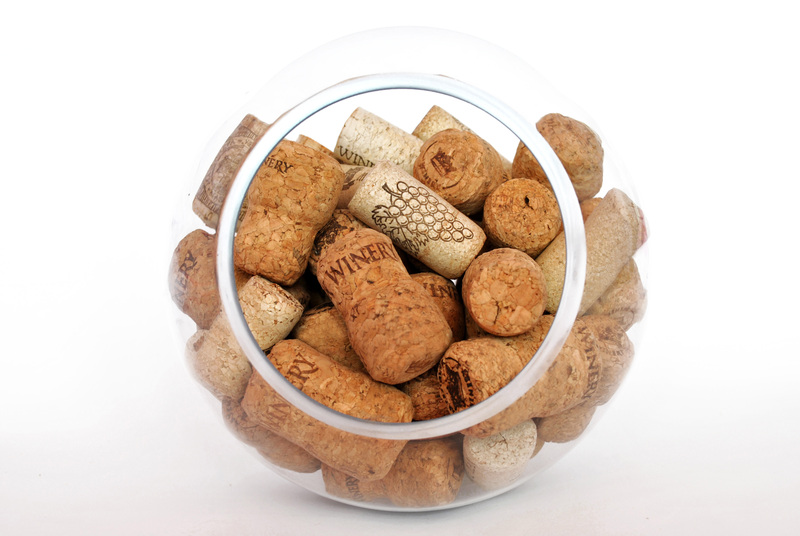An Eco-Friendly Celebration: How to Recycle Your Easter Egg Containers
Posted on 08/06/2024
Easter is a time of celebration and joy for many families around the world. It is a time when children anxiously wait for the Easter bunny to deliver colorful eggs and fill their baskets with sweet treats. However, as we indulge in this festive holiday, it is important to also consider the impact it has on our environment. Easter egg containers, in particular, can contribute to the ever-growing problem of waste and pollution. But don't worry, there are simple and eco-friendly ways to celebrate Easter without harming the planet. In this article, we will explore how you can recycle your Easter egg containers and make your holiday celebrations more sustainable.
Understanding the Impact of Easter Egg Containers
Most of us are familiar with the plastic or cardboard containers that hold store-bought Easter eggs. These containers may seem harmless at first glance, but they can have a significant impact on the environment. The production of plastic containers requires the use of fossil fuels, which contribute to climate change. Moreover, these containers often end up in landfills where they take hundreds of years to decompose, releasing harmful chemicals and microplastics into the soil and water.
Similarly, cardboard containers also have their drawbacks. While they are biodegradable, they still require energy and resources to produce, contributing to deforestation and greenhouse gas emissions. Additionally, many cardboard containers are coated with wax or plastic films which make them difficult to recycle.

Recycling Your Easter Egg Containers
The good news is that there are several ways you can recycle your Easter egg containers and reduce your environmental impact. Here are some tips:
1. Repurpose them: Rather than throwing away your egg containers after use, get creative and repurpose them for other purposes. They can be used as storage boxes for small items or as organizers for your craft supplies.
2. Donate them: If you have excess egg containers that you won't be using, consider donating them to local schools or community centers. They can use them for art projects or as seed starters in their gardens.
3. Recycle them: Depending on the type of container, you may be able to recycle it through your local recycling program. Check with your municipality to see if they accept plastic and cardboard containers.
4. Compost them: If your egg containers are made of cardboard and do not have any plastic or wax coating, you can compost them along with other organic materials. This will help reduce the amount of waste sent to landfills.
Pros and Cons of Recycling Easter Egg Containers
As with any environmental practice, there are both pros and cons to consider when it comes to recycling Easter egg containers.
Pros:
- Reduces landfill waste: By recycling your egg containers, you prevent them from ending up in landfills where they release harmful chemicals.
- Saves resources: Recycling requires less energy and resources compared to producing new materials from scratch.
- Promotes a circular economy: When we recycle, we create a closed-loop system where materials are reused instead of discarded, reducing our reliance on raw materials.
Cons:
- Contamination: If your egg containers are contaminated with food residue, they may not be accepted for recycling.
- Limited options: Not all egg containers can be recycled, especially those with multiple layers of different materials.
- Cost: While recycling itself is a cost-effective solution, some municipalities charge additional fees for recycling services which may deter people from participating.
Tips for an Eco-Friendly Easter Celebration
1. Use natural dyes for eggs: Skip the store-bought dye kits that come in plastic packaging and opt for natural dyes made from food scraps like red cabbage or turmeric powder.
2. Buy bulk candy: Instead of individually packaged candies, buy in bulk and use reusable bags or jars to store them.
3. Choose eco-friendly Easter baskets: Instead of plastic or woven baskets, opt for baskets made from sustainable materials such as bamboo or recycled paper.
4. Support local businesses: Consider purchasing your eggs and treats from local farmers and businesses to reduce your carbon footprint.

Takeaways
- Easter egg containers can have a negative impact on the environment if not disposed of properly.
- Recycling, repurposing, donating, and composting are all viable options for reducing your plastic and cardboard waste.
- There are pros and cons to recycling Easter egg containers, but the benefits far outweigh the drawbacks.
- Making small changes in our holiday celebrations, such as using natural dyes and supporting local businesses, can make a big difference in reducing our environmental impact.
Conclusion
As we celebrate Easter with our loved ones, let's also remember to be mindful of our actions and their impact on the planet. By taking small steps like recycling our egg containers and choosing eco-friendly options, we can contribute to a more sustainable future. So this year, let's make it an eco-friendly Easter celebration!
Latest Posts
Recycling for Environment Health
Start Your Plastic-Free Kitchen Journey
Recycling Polystyrene for a Greener Earth






